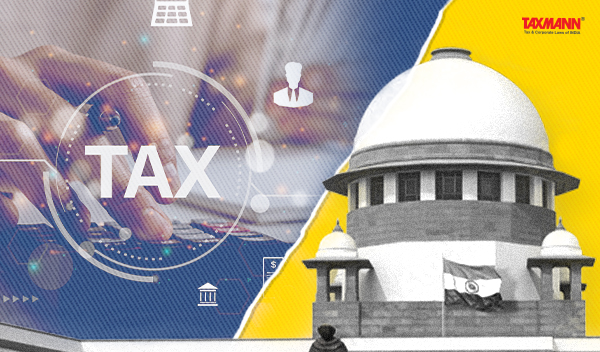Liability Determined Under DTVSV Act Can’t Be Revised by Any Income-Tax Authority | HC
- Blog|News|Income Tax|
- 3 Min Read
- By Taxmann
- |
- Last Updated on 16 September, 2024

Case Details: Satish Kumar Dhingra vs. Deputy Commissioner of Income-tax - [2024] 166 taxmann.com 290 (Delhi)
Judiciary and Counsel Details
- Yashwant Varma & Ravinder Dudeja, JJ.
- Nischay Kantoor, Ved Jain & Ms Soniya Dodeja, Advs. for the Petitioner.
- Vipul Agrawal, SSC for the Respondent.
Facts of the Case
The petitioner had filed its return of income for the relevant assessment year. The Assessing Officer (AO) had passed a final assessment order under section 143(3), making additions to the returned income of the petitioner, and the total income was assessed.
On appeal, the CIT(A) upheld the additions made by the AO. Meanwhile, the petitioner obtained a settlement of all disputes about demands emanating from the Income Tax Act, 1961, by an application made under the Direct Tax Vivad Se Vishwas Act, 2020 (DTVSV Act). Pursuant to the declarations which were made, Form 5 came to be issued, and the total liability was determined and conferred finality in terms as contemplated under the provisions of the DTVSV Act.
Later, DCIT sought to invoke the power conferred by section 154 to revisit a computation of liability on the ground that the short tax and interest were charged in the computation sheet inadvertently, which resulted in the charging of short gross tax liability.
Accordingly, the assessee questioned the action for rectification and filed a writ petition before the Delhi High Court.
High Court Held
The High Court held that as per the scheme of the DTVSV Act, it is found that an applicant desirous of settlement is required to file a declaration carrying requisite particulars in terms of section 4. Section 5 prescribes the time and manner of payment of the amount which may be determined by the Designated Authority.
The Designated Authority, upon receipt of a declaration made and referable to section 4, is obliged to determine the amount payable by the declarant following the provisions of the DTVSV Act. The Designated Authority is required to grant a certificate that would encapsulate particulars of the tax arrears and the amount payable upon such determination. In terms of section 5(2), the declarant is thereafter statutorily placed under an obligation to pay the amount as determined within 15 days of the receipt of the certificate and duly intimate the Designated Authority of compliance.
On a conjoint reading of section 4(6) alongside section 5(3), it was found that the determination as carried out by the Designated Authority is clearly rendered finality and cannot possibly be reopened or revised by any authority under the Income Tax Act by taking recourse to a power which may otherwise be available to be exercised.
The only contingency where a determination made may be liable to be revisited or recalled would be where it is subsequently found that the application made by the declarant is found to suffer from an incorrect declaration or the suppression of a material fact. Absent the above, the declaration and the determination are conferred finality under the DTVSV Act. The closure which comes to be accorded to the dispute thus is intended to operate upon both sides, namely, the assessee and the Revenue. This would flow from the special legislative objectives underlying the DTVSV Act and its avowed intent of providing closure to all tax disputes.
In the given case, it was not that the petitioner had failed to disclose with respect to any material particular or any disclosure so made subsequently being found to be false. Accordingly, the writ petition was allowed, and the rectification notice, rectification order issued under section 154 and notice of demand was quashed.
Disclaimer: The content/information published on the website is only for general information of the user and shall not be construed as legal advice. While the Taxmann has exercised reasonable efforts to ensure the veracity of information/content published, Taxmann shall be under no liability in any manner whatsoever for incorrect information, if any.

Taxmann Publications has a dedicated in-house Research & Editorial Team. This team consists of a team of Chartered Accountants, Company Secretaries, and Lawyers. This team works under the guidance and supervision of editor-in-chief Mr Rakesh Bhargava.
The Research and Editorial Team is responsible for developing reliable and accurate content for the readers. The team follows the six-sigma approach to achieve the benchmark of zero error in its publications and research platforms. The team ensures that the following publication guidelines are thoroughly followed while developing the content:
- The statutory material is obtained only from the authorized and reliable sources
- All the latest developments in the judicial and legislative fields are covered
- Prepare the analytical write-ups on current, controversial, and important issues to help the readers to understand the concept and its implications
- Every content published by Taxmann is complete, accurate and lucid
- All evidence-based statements are supported with proper reference to Section, Circular No., Notification No. or citations
- The golden rules of grammar, style and consistency are thoroughly followed
- Font and size that’s easy to read and remain consistent across all imprint and digital publications are applied



 CA | CS | CMA
CA | CS | CMA
